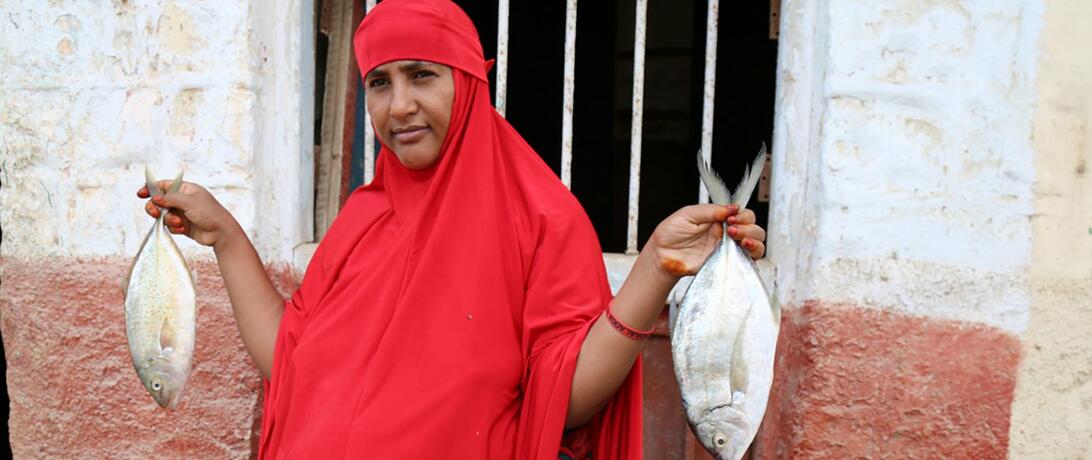
Threats to maritime governance include a lack of good governance ashore. Guest writer Kelsey Soeth of Oceans Beyond Piracy discusses the relationship between the participation of women and the fisheries sector in particular in sub-Saharan Africa.
By Kelsey Soeth
While conducting research for One Earth Future’s new Stable Seas Maritime Security Index, I was reminded of the critical role that women play in improving rule of law and promoting stability in coastal areas. The Index is an online tool that highlights the strengths and challenges of sub-Saharan African coastal states in terms of maritime security and our findings show that many states have made significant strides to improve gender equality in the region.
Threats to maritime governance include a lack of good governance ashore. Coastal states must therefore employ good governance practices to ensure the stability of their maritime domain. One such practice is the equal application of the law, regardless of ethnicity, socioeconomic status, religion, subnational region, or gender. As states can be ethnically or religiously homogenous, gender equality is a much stronger test of equal treatment. Levels of gender equality vary along the sub-Saharan coastline, though many states have made notable progress in this area, especially with regard to greater representation and participation of women in governance structures.
As of 2016, 19 members of the African Union had developed and adopted National Action Plans on Women, Peace, and Security. The objective of these National Action Plans is the implementation of UN Security Council Resolution 1325, which calls for increased participation and representation of women at all levels of decision-making in an effort to empower women to participate as equals in preventing conflict and building peace in all UN member states. These agreements are an important step toward formalizing women’s inclusion in governance.
Several countries have improved women’s representation through new legislation and development-oriented partnerships with regional and global organizations.
Senegal has been particularly successful at incorporating gender parity into its governance structures. Following the 2010 adoption of a new law requiring gender parity for candidates for elected positions, women’s participation in local government tripled from 15.9% in 2009 to 47.2% in 2015. Furthermore, 20% of ministerial level positions were held by women as of 2015.1 According to data from the Inter-Parliamentary Union and the World Bank, The Gambia, Ghana, Guinea-Bissau, Namibia, and Nigeria have even higher proportions of women in high-level political positions.2
Poverty and a lack of social cohesion threaten the rule of law and national security, both onshore and off. These threats require inclusive civilian engagement to counter. To this end, Somalia is promoting women’s economic empowerment through a number of fisheries projects through the Fisheries and Aquaculture Organization of the United Nations (FAO). These projects include training women to build boats, and adding value to post-harvest fish catches. Ms. Shukri Ahmed Mohamed is one of the community organizers working with the latter project. She notes:
“It is important to have women involved in these activities since their contributions have a big influence on ensuring stronger household-level financial management and food security that will directly benefit their families.”3
Programs like this, when coupled with equal property and business rights for women, can greatly expand licit opportunities in coastal economies. In turn, the economic benefits strengthen the rule of law and improve security.
Equal application of the law across society is necessary for good governance. Whether gender equality is achieved through legislated parity or economic initiatives, the inclusion of women improves the rule of law and promotes stability onshore and at sea.
Kelsey Soeth is a project coordinator with Oceans Beyond Piracy, a program of One Earth Future.
1 Semiha Abdulmelik, “Implementation of the Women, Peace, and Security Agenda in Africa,” The African Union Commission, July 2016.
2 Ibid.
3 “Promoting Gender in Fisheries Activities in Somalia,” Blue Growth blog, Food and Agriculture Organization of the United Nations, accessed August 2017.
Article Details
Published
Topic
Program
Content Type
Opinion & Insights